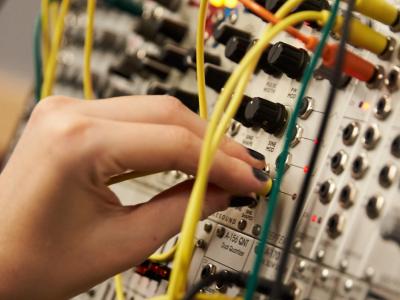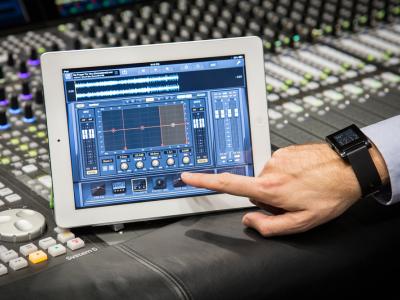What does a Sound Designer (Games and Tech) do?
Working freelance or as part of a larger audio team, sound designers are responsible for creating or compiling high-quality audio assets for interactive media projects like video games, applications, and operating systems. The audio assets that sound designers are responsible for include sound effects, background score, and voice-over.
Collaborating on small indie projects or even working in the robust game-modding community as a sound designer can be an excellent way to build initial connections and start to develop a reputation.
Much like sound effects editors in the film industry, the main job of a sound designer is to search through commercial audio libraries to find the right sounds for a project, or, when the right sounds cannot be found or licensed, record sounds in the studio or the field and process them through a digital audio workstation (DAW) to create the desired effect or tone. However, this is far from all that sound designers do. They are true jacks-of-all-trades, and in addition to placing mics, recording and editing dialogue, and recording and editing field sounds, sound designers are likely to mix sound and implement it in the game engine. A sound designer on a higher-budget project may be slightly more specialized than one who works on an indie game; for example, sound designers who specialize in dialogue are called dialogue editors, and those who specialize in building audio into the game world are audio implementers.
At a Glance
Most sound designers earn a bachelor's degree in audio engineering or a related field. Although this is an entry-level position, it's not an easy one to get, and requires an impressive portfolio. After working in the field for some time, experienced sound designers may be eligible to work as audio directors.
In the film and TV industries, this job is broken up into three tracks: dialogue editors, sound effects editors, and music editors.
For sound designers who are just starting out, it's critical to have a way to demonstrate your skills—especially your ability to create and implement sound. Create your own project, work on a small indie project, redo the sound for a video or game level, or contribute sound design to the robust game-modding community, and you become far more likely to get that first job on a major project. Also consider looking for internships at game company startups.
The Game Audio Network Guild (G.A.N.G.) presents many opportunities for networking within the audio section of the video game industry, and attending general video game industry conferences such as Electronic Entertainment Expo (E3) or Game Developers Conference (GDC) can also prove valuable. There are also opportunities for sound designers at virtual-reality and augmented-reality companies, such as Magic Leap, Oculus, and Exit Reality.
- Sound design
- Audio implementation (Wwise, FMod)
- Audio production
- Audio recording
- Audio editing
- Sound libraries
- Coding (C or C++)
Because they’re part of the video game industry, which requires many individual parts—those created by game designers, character designers, animators, and composers—to be ready around the same time, sound designers must be extremely communicative, collaborative, and deadline-oriented. They must also be independent, as, like many professional audio engineers in other industries, they must be comfortable working for long hours without speaking to anyone else—headphones on and nose to the grindstone. Finally, a passion for and love of video games is essential.
Sound designers may be in-house employees of a game studio—members of the studio's audio department—or freelancers who make contracts with said studios. Sound design rarely requires extensive travel, though it’s not necessarily all desk work, either. Field and studio recordings take sound designers away from the office.
The work schedule of a sound designer is based on where he or she is in a game production cycle. Sound designers experience relaxed periods as well as high-intensity ones. Working in an industry with strict deadlines, all sound designers are familiar with the necessities of crunch time: working nine-to-12-hour days, and likely through the weekend.


















